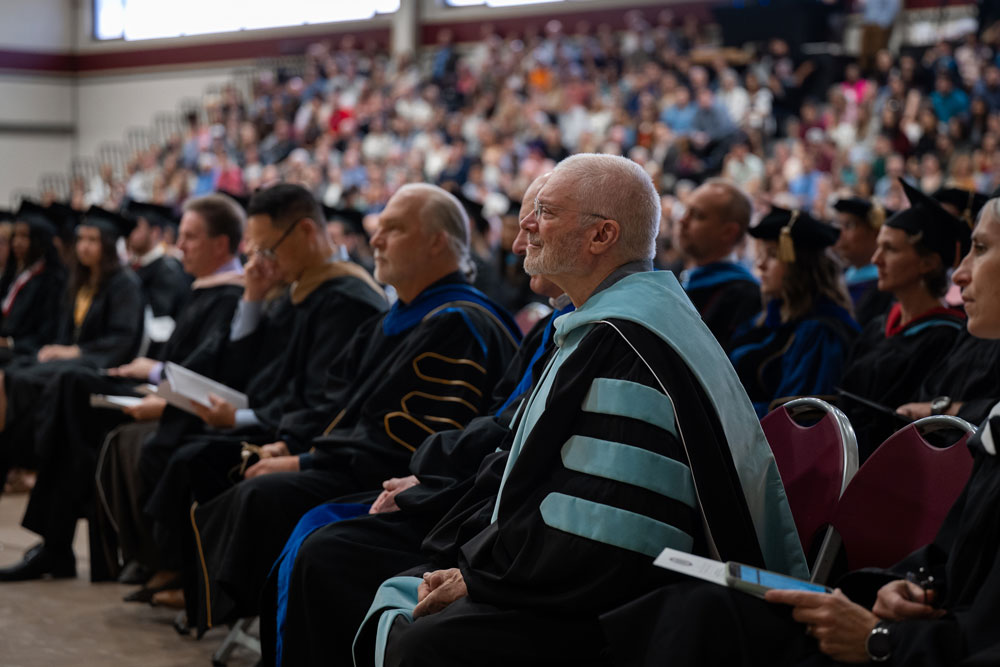Institutional biblical integrity at a Christian university is dependent on the theological commitments of its faculty. A colleague of mine once said, “There are many ways a Christian college can lose its way, but probably the most common and quickest way to deviate from faithfully following an institutional mission originates in the faculty. The faculty is the heart of the institution.” For this reason, it is not sufficient that faculty members merely agree to avoid opposing the institution’s articles of faith, as is the case in many Christian colleges. Rather, they must wholeheartedly affirm them. In a Christian institution, where the authority of Scripture and the lordship of Christ are central, such an affirmation is necessary for the preservation of the institution’s identity and purpose.
The difference between passive compliance and wholehearted affirmation is significant. Passive compliance permits faculty members to intellectually, or even professionally, distance themselves from the theological convictions that shape the life and learning of the university. In contrast, wholehearted affirmation requires a sincere embrace of those same convictions. The latter enables integration of faith and learning at the university.
This distinction is crucial since faculty members do not merely disseminate information; they shape minds and cultivate affections. Students are significantly formed by the theological vision their professors articulate. If faculty members are not fully persuaded of the truths in the institution’s doctrinal statement, their teaching will inevitably reflect that divergence. Over time, the dissonance between institutional confession and classroom practice produces confusion, erodes trust, and undermines mission. As a mentor of mine once commented, “Failing to recruit, develop, and retain the right professoriate will cause the college to lose its way in profound and perhaps unrecoverable ways. Momentum is inevitable. Energy will follow the heart.” This is not a hypothetical threat. It is the mechanism through which many Christian institutions experience “mission drift.”
As Glanzer, Cockle, and Martin note in Christian Higher Education: An Empirical Guide (2023), one of the most significant distinguishing marks of a Christian university is the presence of clear “membership requirements.” These include whether the institution requires its faculty and leadership to be professing Christians who are active in local churches and affirm the institution’s theological convictions. While many Christian universities have some form of a statement of faith, the depth of commitment required of faculty varies widely. Some institutions allow faculty members to affirm that they will not teach against the institution’s beliefs, while others require them to affirm those beliefs as their own. It is the latter—wholehearted affirmation—that marks institutions with high missional integrity. Such institutions are increasingly rare. And yet, they are the ones that experience the least mission drift. Consider Harvard and Princeton as examples of mission drift. Harvard was established for the purpose of training Puritan ministers, and Princeton for the purpose of training Presbyterian ministers.
At Cairn University, we emphasize during the hiring process that faith and learning are deeply integrated. This is a theological conviction with curricular, pedagogical, and spiritual implications. Our professors are not only scholars, they are shepherds of the mind and soul. We expect our faculty to place student discipleship and the cultivation of wisdom at the heart of education. As such, they must teach out of a conviction regarding the truth and authority of Scripture, the lordship of Christ, and the coherence of a biblical worldview. When professors embrace these truths, the integration of faith and learning becomes authentic and compelling. When they do not, integration becomes performative, and students quickly discern the difference.
Theological fidelity in faculty is not simply a matter of institutional policy; it is a matter of institutional identity. The faculty is the university in many respects. Its members bear a significant responsibility for the intellectual and spiritual formation of students. Their collective convictions inevitably become the de facto mission of the institution. If faculty members hold a range of conflicting worldviews, the university’s theological center will fracture. Momentum is inevitable, and energy follows the heart. If the hearts of the faculty members are not aligned with the institution’s confession, the trajectory of the institution will bend away from its mission—even if the mission statement remains unchanged.
Failure to recruit, develop, and retain faculty members who genuinely believe in the mission of the university is perhaps the surest way to lose that mission. The erosion is often slow and imperceptible at first, but it can turn into a catastrophic ideological mudslide. Therefore, faculty members at a Christian university must not be permitted to merely acknowledge the institution’s beliefs. They must be called upon to wholeheartedly affirm them. This affirmation should be clear, public, and sincere. It should be required upon hiring and reaffirmed annually. The affirmations should be confirmed by active participation in the life of a local church and evidence of spiritual maturity.
For parents seeking to evaluate Christian colleges, this emphasis on faculty affirmation provides a critical lens. Parents should not merely ask whether a school has a statement of faith but whether faculty members are required to wholeheartedly affirm that statement. Review the university’s doctrinal commitments as posted on its website and ask whether those doctrines are actively upheld in classroom teaching and campus culture. Ask admissions representatives or faculty members directly: Are professors active members of churches grounded in the authority and inerrancy of Scripture? Are they selected and retained based on their theological alignment? Has the institution taken concrete steps to safeguard doctrinal integrity over time? These questions are foundational to ensuring that the spiritual and intellectual guidance your student receives is rooted in a biblical worldview.
In summation, theological integrity is central to Christian higher education, and it begins with the people who teach. If a university’s doctrine is to shape its pedagogy, curriculum, and culture, then it must first shape its professors. Wholehearted affirmation of the institution’s statement of faith is not merely an administrative hurdle. It is an act of alignment, conviction, and worship. And it is essential for the institution’s biblical integrity and faithful stewardship of its mission.






